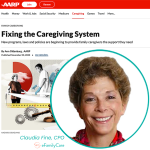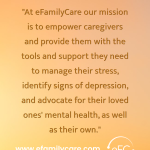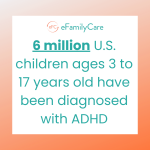As the coronavirus remains a concern for all of us, the necessity of securing health care preferences for ourselves and our aging loved ones in the event of an emergency assumes a newly heightened relevance. Advance care directives provide legal documentation and instruction for carrying out an individual’s medical care plan in the event they are no longer physically or mentally able to make or express such wishes. Having an advance directive in place is important for any adult, at any stage of life, as the need for clearly defined medical wishes can arise suddenly and unexpectedly.
While discussions about end-of-life plans can be difficult for the family caregiver to initiate, the universality of pandemic-induced anxieties may make approaching this conversation with an aging loved one easier. At eFamilyCare, we support the family caregiver in the process of determining what matters most to their loved one in this scenario, helping to create a plan that is customized to meet the needs and preferences of the older adult. To better assist the family caregiver and their loved one in this process, we’ve compiled answers to common questions about securing an advance directive.
What Is An Advance Directive?
An advance directive is legal documentation that defines instructions for health care treatment in the event of an emergency or end-of-life situation. The medical preferences outlined by the advance directive are determined before your loved one loses the capacity to make these decisions for themself. In New York State, appointing a durable power of attorney or health care proxy–such as the family caregiver– entrusts these wishes are protected should the older adult become incapacitated.
What Comprises an Advance Directive?
Though varying by state, an advance directive is generally composed of a living will and a durable power of attorney or health care proxy. A living will differs from a regular will in that it guides decisions that must be made before death, outlining the individual’s wishes before they are in a position where they are unable to make them. A living will is not an “all or nothing” document. Your aging loved one can direct that certain temporary treatments be tried before being placed on life support machines. Additionally, detailed instructions can be given that are specifically related to COVID-19 concerns.
What Types of Treatment Are Guided By Advance Directives:
Advance directives make clear your loved one’s wishes for medical intervention in a variety of scenarios, clarifying decisions about:
- The use of ventilators, dialysis machines, or other life-supporting equipment
- The use of cardiopulmonary resuscitation (CPR)
- Implementing artificial nutrition via tube feeding and/or artificial hydration via IV
- Treatments for pain, in the form of comfort care or palliative care
- Organ and/or other body tissue donation
While the use of CPR is a standard life-saving intervention in the event of its necessity, it poses specific health risks for the elderly or those with severe or terminal illnesses. In this case, securing a Do-Not-Resuscitate Order (DNR) in advance may protect the older adult from suffering the potentially severe damage of CPR efforts. An older adult should discuss and obtain a DNR order with the assistance of the family caregiver and medical team, while the older adult is capable of making such decisions.
COVID-19 poses a significant health risk for the elderly, as they are both more susceptible to catching the virus and have lower rates of survival if infected. The potential complications arising from the coronavirus are illustrative of the vital need for securing advance directives. While planning for emergency health situations or end-of-life care can be troubling, eFamilyCare is here to help your family as medical, legal, and emotional concerns arise, ensuring that desired health outcomes are met at every stage of the process.







